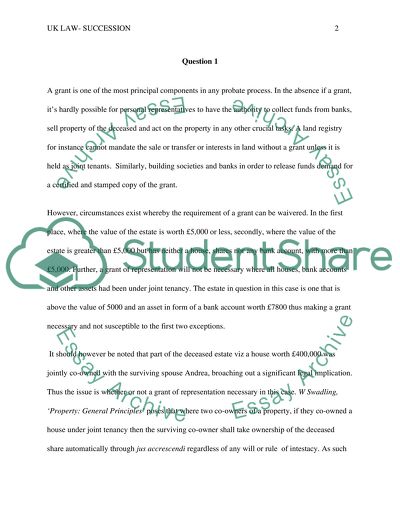Cite this document
(“UK Law-Succession Coursework Example | Topics and Well Written Essays - 1750 words”, n.d.)
UK Law-Succession Coursework Example | Topics and Well Written Essays - 1750 words. Retrieved from https://studentshare.org/law/1452728-uk-law-succession
UK Law-Succession Coursework Example | Topics and Well Written Essays - 1750 words. Retrieved from https://studentshare.org/law/1452728-uk-law-succession
(UK Law-Succession Coursework Example | Topics and Well Written Essays - 1750 Words)
UK Law-Succession Coursework Example | Topics and Well Written Essays - 1750 Words. https://studentshare.org/law/1452728-uk-law-succession.
UK Law-Succession Coursework Example | Topics and Well Written Essays - 1750 Words. https://studentshare.org/law/1452728-uk-law-succession.
“UK Law-Succession Coursework Example | Topics and Well Written Essays - 1750 Words”, n.d. https://studentshare.org/law/1452728-uk-law-succession.


